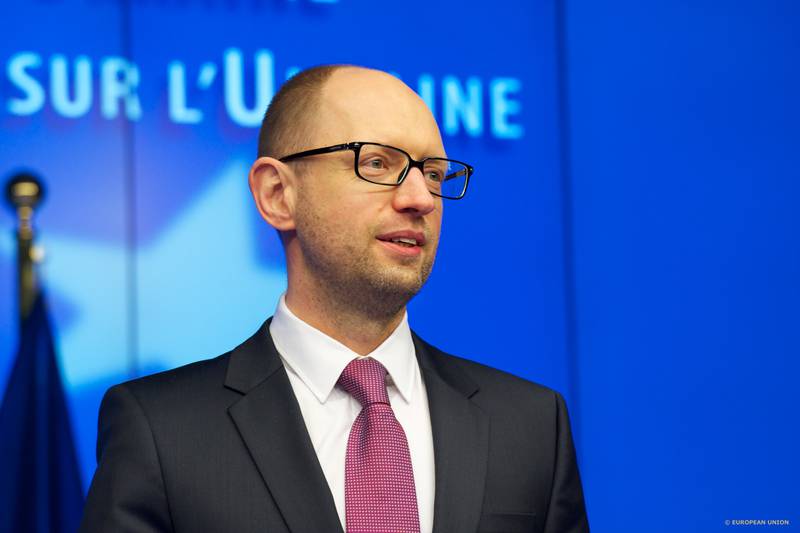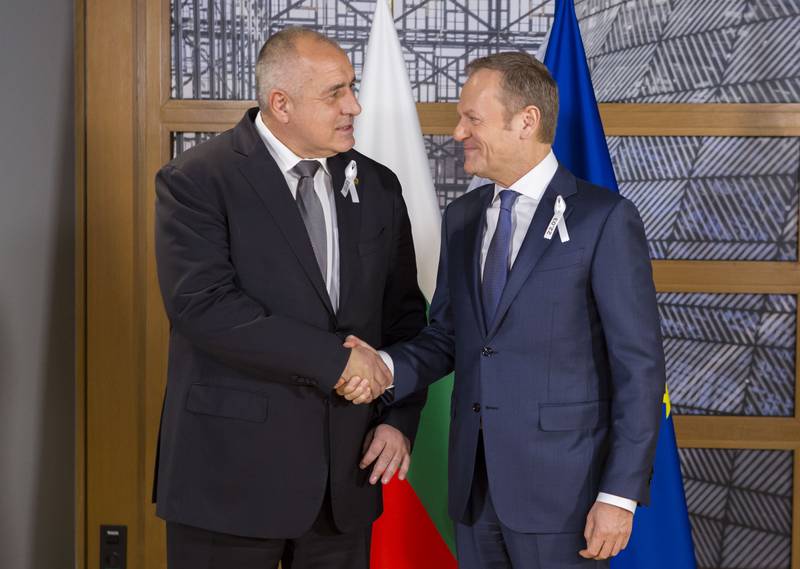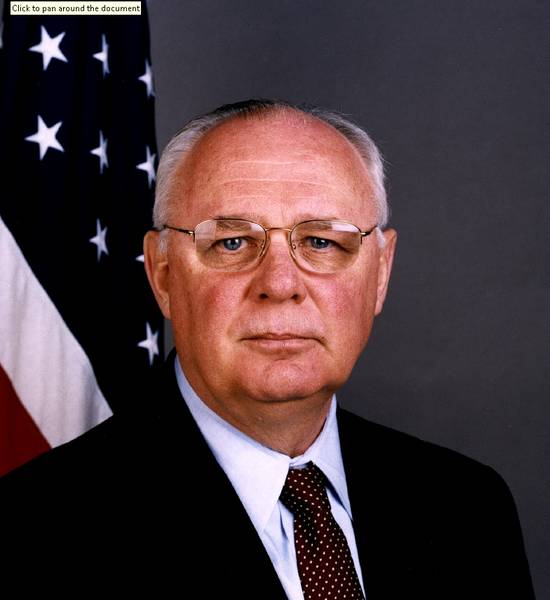EU Wants To Give Chance To Dialogue with Russia
Adelina Marini, March 10, 2014
 Something like an ultimatum, something like a deal, something like determination. This is how we can roughly sum up the agreement the leaders of the EU member states reached on March 6th to solve the Ukrainian crisis. Now that the first reactions from the joint statement of the member states, announced on Thursday, have settled down we can try a bit more sober approach to analysing the outcome of the extraordinary EU summit. And that outcome can fit into one word - realism. Against the backdrop of the huge expectations for a strong message of determination toward Moscow, perceived only as sanctions thus making Cold War II absolutely inevitable, the European Council took out its strongest trump card - its values and capability to learn from past mistakes. But let's start in order of appearances.
Something like an ultimatum, something like a deal, something like determination. This is how we can roughly sum up the agreement the leaders of the EU member states reached on March 6th to solve the Ukrainian crisis. Now that the first reactions from the joint statement of the member states, announced on Thursday, have settled down we can try a bit more sober approach to analysing the outcome of the extraordinary EU summit. And that outcome can fit into one word - realism. Against the backdrop of the huge expectations for a strong message of determination toward Moscow, perceived only as sanctions thus making Cold War II absolutely inevitable, the European Council took out its strongest trump card - its values and capability to learn from past mistakes. But let's start in order of appearances.
Before the summit
The extraordinary European Council was preceded by an extraordinary meeting of the EU foreign ministers on March 3rd, when they strongly condemned Russia's military intervention in Ukraine and the violation of its territorial integrity. The ministers also called on Russia to withdraw from Ukraine and to respond to the calls of the new authorities in Kiev for dialogue. In order to enhance its position, the EU announced that the EU member states that are part of the G8, for now, will not participate in the Group's summit in Sochi in June. It is a fact, however, that the foreign ministers' meeting and the EU summit took place pretty late - after NATO discussed the situation and admitted the seriousness of the crisis and after the US announced its first measures - visa restrictions and much after the crisis in Ukraine deteriorated.
The reason for this delay is the division within the EU between those who know Russia in their capacity of "great powers" in previous conflicts with that country and those who know it in their capacity as victims of such conflicts. There was also a third group, which seemed the biggest, of countries who were completely neutral (silent) on the issue. This was very well illustrated by the leaders' statements on their entry into the Council building in Brussels. The UK reduced the problem to helping Russia and Ukraine start negotiations, the EU to demonstrate it will help Ukraine and to send a clear message to the Russian government that what it is doing is completely unacceptable. France announced that Russia must be subjected to huge pressure and Germany, in the spirit of the Cold War, said Europe should protect those peoples who fight for liberty and independence.
As a spokesperson of the victims of Russian occupation emerged Lithuania's President Dalia Grybauskaite, who sent a remarkably strong message before the meeting. First of all, we should send a signal to ourselves that we are united because we have unpredictable behaviour against us, she said. Europe is facing the danger of redrawing the post-war borders which demands an adequate response. After Ukraine, it is going to be Moldova, other countries will follow, Ms Grybauskaite has warned. However, other member states were in the mood of postponing tough decisions. Dutch Prime Minister Mark Rutte advised giving a chance to deescalation, Xavier Bettel, the premier of Luxembourg, said it was better to find a solution first and then act, possibly in two weeks, the prime minister of Denmark, Helle Thorning-Schmidt, said the door for dialogue with Russia should remain open and her Finnish counterpart Jyrki Katainen supported her saying that the Russians should be encouraged to sit at the negotiations table with the OSCE and EU.
A perplexing lack of position demonstrated Prime Minister Plamen Oresharski of Bulgaria whose country is subjected to severe economic dependence by Russia. He was talking entirely in the neutral person that a single position should be reached. As a leader of a pro-Russian government, Oresharski tried to balance between the common European position so far and the Russian interest. He reiterated that Bulgaria supports Ukraine's territorial integrity but said the Ukrainian authorities are obliged to work for inclusion of all Ukrainian citizens no matter of their language or ethnic origin. Bulgaria was also a country that reacted sharply against the revocation by the Ukrainian parliament of the law on state language policy, aimed entirely against Russia. In a special statement, Kristian Vigenin, the Bulgarian foreign minister, recalled on February 28th, that there is a large Bulgarian diaspora in Ukraine. He said he expected the parliament in Ukraine to adopt an alternative law soon that will take into account the  interests of the various ethnic groups and national minorities, including those of the Bulgarian community in Ukraine.
interests of the various ethnic groups and national minorities, including those of the Bulgarian community in Ukraine.
Before the summit on March 6th, in Brussels, Premier Oresharski answered again oddly the question whether Bulgaria was ready to support possible sanctions against Moscow. "You are asking me provocative questions" he said smiling.
The expectations
The entire international community was looking forward the decision of the Europeans as the expectations fell nothing short but sanctions for the Russian leadership as an equivalent answer to the American approach. It was expected the EU to suspend its cooperation with Russia in key areas and to state its full support for the government in Kiev, moreover that the EU summit in Brussels was attended by Prime Minister Arseniy Yatseniuk. Meanwhile, Moscow signalled where it will hurt the most. In a special statement, the spokesman of the Russian foreign ministry, Alexander Lukashevich, called the EU not to suspend the visa dialogue with Russia.
At a new conference after his meeting with the 28 heads of state or government, which lasted more than two hours, Mr Yatseniuk said his government was ready to sign the association agreement at any time. It is this agreement that sparked the Ukrainian crisis after the former Ukrainian president, Viktor Yanukovych, refused to sign it at the Eastern Partnership summit in Vilnius in end-November. This unleashed a wave of huge protests that reminded of the Orange Revolution in Ukraine of 2004. This refusal seemed surprising for the EU, although the unhidden pressure by Moscow and the ultimatum were well known beforehand. Mr Yatseniuk said he did not expect anything less than the EU to demonstrate determination and support for Ukraine and to be ready to sign the association agreement as soon as possible.
The decision
Completely in the spirit of the European way of seeking consensus, the EU's decision is an illustration of the desire to make everyone if not happy at least evenly unhappy, as someone said last week. European President Van Rompuy started the presentation of the decision by, first, sizing up the scale of the crisis. In the past days, politicians, media and analysts raced for the most appropriate comparison of the current crisis with a period from the past. In the social networks, Putin has lived a new life with a new nickname "Putler" (a combination between Putin and Hitler), his actions were compared  to the events of 1939 in Europe, as even former US secretary of state Hillary Clinton, strongly desired to become the Democrats' nomination for president, joined the race comparing Putin with Hitler.
to the events of 1939 in Europe, as even former US secretary of state Hillary Clinton, strongly desired to become the Democrats' nomination for president, joined the race comparing Putin with Hitler.
"These last days have seen perhaps the most serious challenge to security on our continent since the Balkan Wars", said Rompuy, thus comparing the scale of the crisis with the break-up of former Yugoslavia in the beginning of the 1990s which, even today, is a source of challenges for the EU with the unresolved conflicts in Bosnia and Herzegovina and Kosovo. That is why, Europe's response is commensurate. The EU demanded an immediate withdrawal of the Russian military forces back to their barracks and to ensure access for international observers. Just like the EU asked in 2008 during the Georgian crisis. For the EU, the solution to the problem lies with maintaining Ukraine's territorial integrity, sovereignty and the country's independence, which can only be achieved via negotiations.
And because relations with both Ukraine and Russia are very important for the EU, the expectations of the Union are for an open and honest dialogue with the mediation of international organisations and even the EU itself. Dialogue is the key in the Union's decision because unless there is no dialogue the EU will undertake the strict measures it was expected to decide on Thursday. The negotiations must begin "within the next few days", but it is not specifically said how many precisely, and should continue "within a limited timeframe", also without specifying what does limited mean - a week, two, a month. If there are no results unclear for how long, the EU will announce additional measures, including travel ban, freezing of assets and suspension of the EU-Russia summits. As a matter of fact, given the last summit on January 28th, which lasted only two hours and a half instead of the usual two days, this will hardly be the scariest punishment for Moscow, but, anyway, it is a signal for serious consequences.
If Russia continues to destabilise the situation in Ukraine, this will lead to "severe and far reaching consequences". These include economic sanctions which could spread to all economic areas. On March 4th, during his first news conference in months, resembling very much a media theatre, Vladimir Putin warned that precisely those who intend to impose sanctions should carefully consider the consequences. "I believe that in today's world, where everything is interconnected and interdependent, it is possible to harm another country but this would be a mutual harm and that is why one should bear that in mind", Putin said then.
Freedom worth 11+ billion euros
 The big surprise in the leaders' decision from March 6th is that in their joint statement they put forward very serious conditions to provide financial assistance to Ukraine. The European Commission presented on March 5th a financial aid package worth 11 billion euros. Of them, three billion will be allocated from the EU budget, 1.6 bn will come in the form of loans and 1.4 bn will be in the form of grants. Up to 8 bn will be secured by the European Investment Bank and the European Bank for Reconstruction and Development. Also envisaged is to provide additional 3.5 bn from the EU's neighbourhood investment facility and the creation of a special donor platform in the form of a trust fund to collect money for Ukraine. The package also envisages speeding up of the modernisation of the Ukrainian gas transit network and work on reverse flows through Slovakia which will allow the country to survive in case Russia uses natural gas as a tool for pressure, as it did in the winter of 2009.
The big surprise in the leaders' decision from March 6th is that in their joint statement they put forward very serious conditions to provide financial assistance to Ukraine. The European Commission presented on March 5th a financial aid package worth 11 billion euros. Of them, three billion will be allocated from the EU budget, 1.6 bn will come in the form of loans and 1.4 bn will be in the form of grants. Up to 8 bn will be secured by the European Investment Bank and the European Bank for Reconstruction and Development. Also envisaged is to provide additional 3.5 bn from the EU's neighbourhood investment facility and the creation of a special donor platform in the form of a trust fund to collect money for Ukraine. The package also envisages speeding up of the modernisation of the Ukrainian gas transit network and work on reverse flows through Slovakia which will allow the country to survive in case Russia uses natural gas as a tool for pressure, as it did in the winter of 2009.
The package also provides for speeding up the plan for visa liberalisation and providing technical assistance to implement constitutional and judiciary reform. The heads of state and government welcomed the Commission's package, but put several conditions forward which are very important and show the EU is learning from past mistakes. In parallel to the recovery of the country's macro economic stability via strict fiscal and monetary discipline, the Union expects Yatseniuk's government to urgently launch an ambitious programme for structural reforms, among which a special focus is put onto the fight against corruption and securing transparent governance. In support of this demand is the European Council's decision to freeze and return to the Ukrainian treasury the money of people believed to be responsible for embezzlement in Ukraine from Yanukovych's closes circle.
As a sweetener for the painful transition that is expected of the Ukrainian government to launch, the EU offers to sign the political chapters of the association agreement and the special agreement for deep and compressive free trade area. It is explicitly said that this agreement will be signed before the early elections on May 25th, but no date is quoted. The text makes it clear that the EU has learnt the lesson that this agreement seriously harms the Russian economic interests in Ukraine, which is why it says that the political chapters will be signed first and later an option will be sought to ensure favourable trade conditions with Ukraine to avoid hurting Ukrainian exports.
In the end of last year, when the situation in Kiev started to spill out of control, President Putin supported Yanukovych's request for a trialogue EU-Russia-Ukraine, which European Commission President Jose Manuel Barroso firmly rejected. "The times of limited sovereignty are over in Europe", he said then. But now, when Yanukovych is out of the equation, the EU is ready to such a trialogue. The question is will Putin accept, especially given the fact that first of all common ground needs to be found  to enable such a trialogue because for Putin issues like liberty, independence, democracy and rule of law are abstract categories that are irrelevant to the direct national interest.
to enable such a trialogue because for Putin issues like liberty, independence, democracy and rule of law are abstract categories that are irrelevant to the direct national interest.
That is why, someone should translate David Cameron's words after the end of the summit on Thursday evening to a language Putin can understand: "In Europe, if we've learnt anything over the years, it is we should stand up to aggression, we should stand up for the rule of law, we should stand up for the rights of free people to determine the systems under which they want to live. Here, we have in Ukraine a people who want to determine their own future, who took a stand against corruption, who suffered terribly in those events when so many protesters were shot dead and who want to choose a more free, less corrupt and more European future".
Arseniy Yatseniuk would hardly be that interpreter, who on Thursday paraphrased Ronald Reagan's famous call in 1987, saying: "Mr President Putin, tear down this wall of intimidation". However, Putin is not Gorbachev. That is why, until Putin's reaction is awaited, the EU should urgently find a translator who should tell Putin that the EU does not want Ukraine to possess it, but desires a stable, free and democratic neighbourhood where there is rule of law, because this is the only way of doing successful business.
 Boyko Borissov, Donald Tusk | © Council of the EU
Boyko Borissov, Donald Tusk | © Council of the EU Boris Johnson | © Council of the EU
Boris Johnson | © Council of the EU James W. Pardew | ©
James W. Pardew | ©